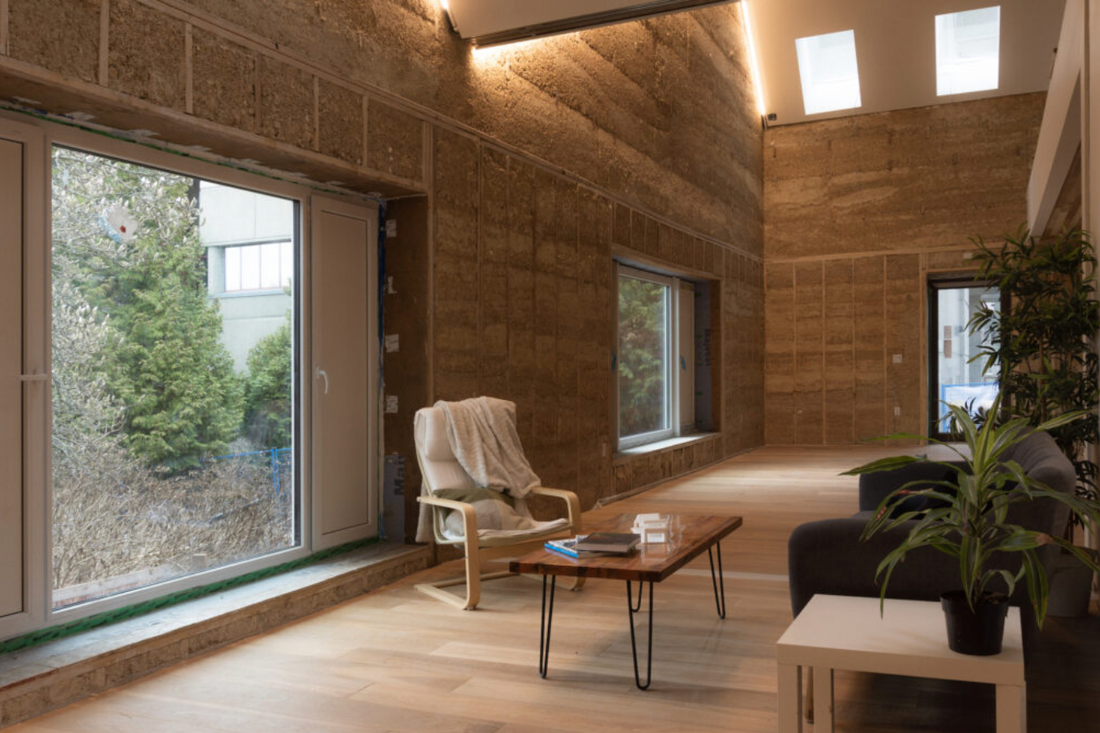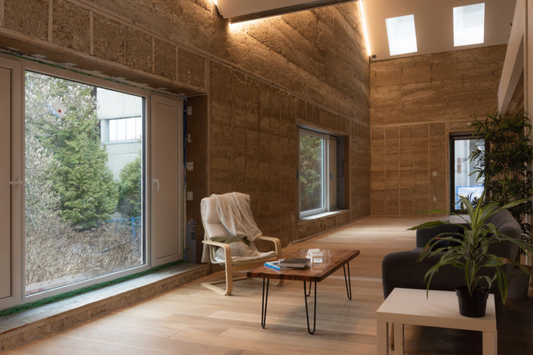
Innovative Hempcrete Building at Canadian University Reduces Carbon Footprint by 80%
Share
Innovative Hempcrete Building at Canadian University Reduces Carbon Footprint by 80%
The University of British Columbia (UBC) in Canada recently unveiled a hempcrete building constructed with sustainability in mind, resulting in an impressive 80% reduction in carbon emissions compared to traditional building methods and materials. The Third Space Commons, a 2,400-square-foot teaching and learning facility at UBC's Faculty of Applied Science, was designed to achieve near-zero embodied carbon — the total CO2 emissions associated with the production, transportation, and disposal of materials or products.
The project was spearheaded by Third Quadrant Design, a collaborative team of 60 UBC students from various disciplines, including engineering, architecture, arts, and business, who worked closely with professional contractors. The team prioritized sustainable materials and systems throughout the building process, from electrical installations to heating and ventilation.
Adam Rysanek, an assistant professor at the School of Architecture and Landscape Architecture and an adviser to the team, explained that conventional emissions estimates in the construction industry only account for about 40-60% of a building's total materials, as there are no established standards for measuring the rest. To minimize emissions, the project avoided using traditional concrete, which is a major contributor to CO2 emissions in the building industry. Instead, the foundation consists of reusable steel piles, while light timber framing replaced engineered wood, which is more carbon-intensive due to the use of fossil fuel-derived glues.
The team sourced surplus materials from other construction sites in Vancouver and repurposed additional components for the project. According to Peter Ehrlich, construction lead and civil engineering student, many of the materials used, such as windows, solar panels, appliances, and lumber, were destined for landfill sites.
The Third Space Commons is set to participate in the U.S. Department of Energy Solar Decathlon Build Challenge, an international contest that celebrates high-performance building design. Rysanek believes the project serves as a prototype for achieving net-zero carbon in building design, particularly for low-rise homes, schools, and multi-family residences. "The team is demonstrating how sustainability and regenerative design can lead to buildings that are both carbon-minimal and beautiful," he added.
For their commitment to reducing the carbon footprint of the construction industry, Third Quadrant recently received the inaugural B.C. Embodied Carbon Award for Small Building Construction from the British Columbia Carbon Leadership Forum.



